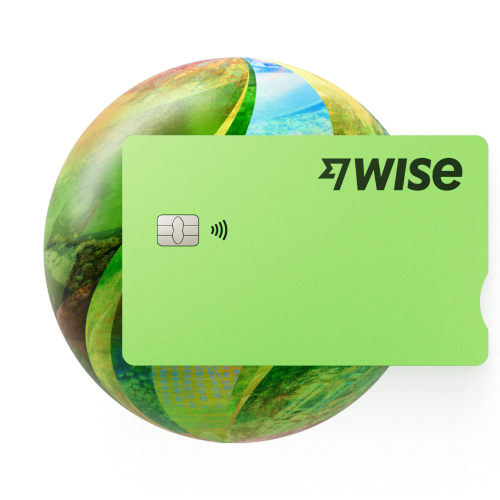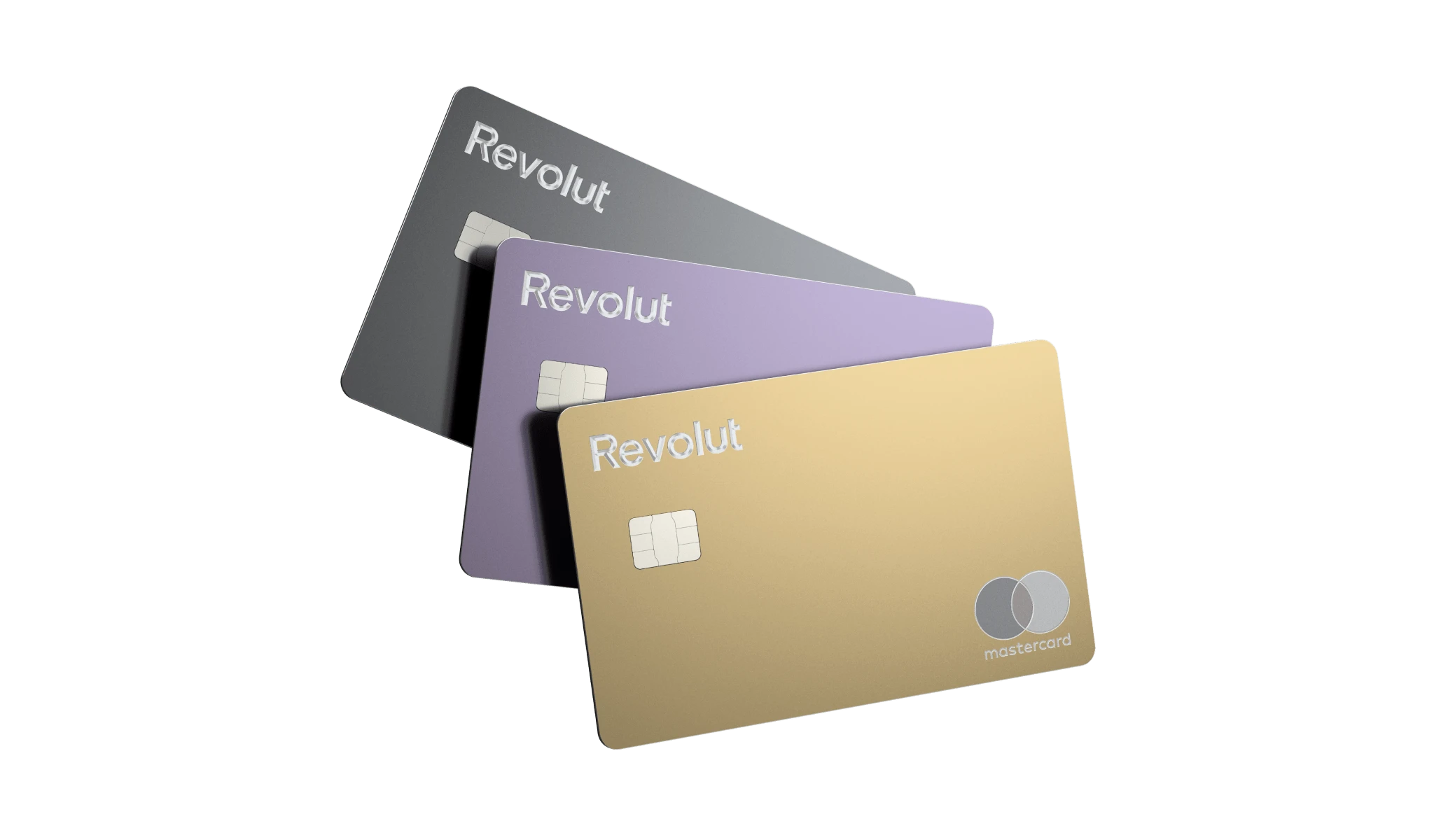The Best Ways to Take Travel Money to Canada
![]()
Prepaid travel card
![]()
Travel debit card
![]()
Cash
![]()
Travel credit card
Canada is huge and varied, with plenty to explore whether you’re into soaking up the culture, getting outdoors to take in the scenery, or exploring the vibrant cities. But whatever your plans may be, you’ll need to figure out the best way to pay for things while you’re there. Getting your travel money organised in advance will mean you don’t run into unexpected costs, or end up stuck without easy access to your money while you’re supposed to be enjoying your break.
This guide covers 4 popular ways to take money to Canada, so you can pick the one that suits you best.
Prepaid travel cards to use in Canada
Ideal for: Secure and convenient spending, with the option to exchange your money to CAD in advance if you want to.
Prepaid travel cards often come from specialist providers rather than banks, and may allow you to hold a foreign currency balance for spending when you travel. This option means you can convert in advance of your trip, to lock in an exchange rate and see your travel budget easily. Some cards also have the option to leave your money in NZD and convert at the point of purchase for flexibility. Prepaid travel cards usually come with perks like better exchange rates than you’d get with a bank, or some free ATM withdrawals when you’re overseas. You might have to wait a few days for your card to arrive in the post, but once you have it you can use it in Canada, and then just put it away for your next trip, usually with no ongoing charges to worry about.
Wise - our pick for prepaid travel card

- Hold and exchange 40+ currencies in your linked Wise account
- No annual or monthly fees to pay, and no minimum balance requirement
- Currency exchange uses the mid-market rate with no markup
- Some free ATM withdrawals available every month
- Virtual and physical cards available
| Wise card pros | Wise card cons |
|---|---|
| ✅ Currency exchange uses the mid-market rate with low conversion costs
✅ No foreign transaction fees apply ✅ Free to hold and spend 40+ currencies ✅ Receive payments to your Wise account in a selection of global currencies ✅ No minimum balance or ongoing fees |
❌ 14 NZD fee to order your card
❌ Free ATM withdrawals are limits to 2 per month, to the value of 350 NZD. Fees of 1.75% + 1.5 NZD after that ❌ It can take up to 2 weeks to get your card in the mail |

Pros and cons of taking money to Canada with a prepaid travel card
Pros:
- Spend and make cash withdrawals anywhere your card network is accepted
- Convert your balance to CAD in advance if you’d like to lock in the exchange rate
- Safe to use and not linked to your NZD bank account
- Cards are available with no minimum balance or ongoing fees to pay
- Currency exchange may have better rates than a bank will offer
Cons:
- Card order fees can apply, and there may be inactivity costs if you don’t use your card often
- ATM fees may apply, depending on the card you pick
- It can take some time to get your card in the post
Travel debit cards to use in Canada
Ideal for: Travel spending with a card optimised for international use, plus no interest or credit check to worry about
Travel debit cards are linked to a digital account that’s held separately to your normal NZD account. That can make them handy for saving towards travel, and also means they’re secure when you’re abroad. Many travel debit cards let you hold multiple currencies and spend or make cash withdrawals wherever you see the card network symbol displayed. Different cards have their own features and fees but you’ll find they’re optimised for international use, which can mean no foreign transaction fees and easy ways to manage your account on the move with just your phone.
Revolut - our pick for travel debit card

With this card:
-
- Hold and exchange multiple currencies, spend in 150+ countries, wherever the card network is accepted
- Some no- fee ATM withdrawals available every month
- You can exchange up to 2,000 NZD a month with the mid-market rate before a fair usage fee applies (Standard plan)
- Easy ways to split bills with friends, and to send local and international transfers
- Although Revolut has only launched one account type so far in New Zealand, more are coming
| Revolut card pros | Revolut card cons |
|---|---|
| ✅ Spend and make cash withdrawals in Canada and close to 150 other countries
✅ Hold and exchange a selection of major currencies currencies ✅ Get some no fee ATM withdrawals every month, depending on the plan you pick ✅ Get some currency exchange every month which uses the mid-market rate ✅ No card order fee |
❌ Exchange up to 2,000 NZD/month (Standard plan) with no fees, 0.5% fair usage charge after that
❌ Out of hours fees push up currency exchange costs on the weekend ❌ ATM fees of 2% if you withdraw more than 350 NZD a month (Standard plan) |

Pros and cons of taking money to Canada with a travel debit card
Pros:
- Some options offer currency conversion which uses the mid-market rate and low or no fees
- Cards may have low cost, or free, ATM withdrawals overseas
- You’ll never be charged interest or penalty fees on your card
- Cards usually come with multi-currency accounts you can use on future trips too
- View and manage transactions, and freeze or cancel your card in the provider app
Cons:
- Card features and fees vary widely, and can include exchange rate markups
- Some transaction fees usually apply once you exhaust any no fee limits associated with your card
- Some cards have monthly fees to pay to get full feature access
Taking cash in Canada
Ideal for: those occasions when only cash will do - tipping in restaurants, shopping in local markets, and so on
While you’re in Canada you’ll often be able to use your card to make payments, but as with most countries around the world, there are some times when cash is just easier, such as when leaving a tip or if you’re buying souvenirs at a market. Canada is a pretty safe place, but as you’d expect, there are still pickpockets and thieves - so carrying lots of cash with you is usually not such a good idea. You may prefer to convert a little in New Zealand before leaving, or simply make an ATM withdrawal on arrival at the airport, so you know you have it as a back up should you ever need it
Do I need cash in Canada?
In Canada you’ll be spending in Canadian dollars - but cash is only used about 20% of the time on average, which means you don’t need to carry a lot of cash in your wallet at any one time. Most merchants, hotels and restaurants will be set up to take card payments, but having multiple payment options is still a useful plan. Generally carrying a little cash, and a prepaid or debit travel card from a service like Revolut or Wise is a good way to cover all your options. You can spend with your card where that’s available, and make cash withdrawals to tide you over elsewhere.
How to buy Canadian dollars in Canada?
Assuming you're in Canada to see the city sights you won’t struggle for currency exchange options. Most city centres and central business districts will be home to plenty of exchange options, and even in smaller towns you’ll find one or two. Bear in mind that if you’re heading somewhere more remote in Canada, your options for exchange may be more limited - get cash in the city as you pass through if you can.
How to buy Canadian dollars in New Zealand?
If you want to exchange NZD to Canadian dollars in New Zealand before you leave, that’s also an option. You may pop into a physical currency exchange store near to your home, or you could order online for collection or home delivery with a service like Travelex.
Best place to get Canadian dollars from
There’s no single best place to get your Canadian dollars - shopping around is key, as each provider, bank or currency service will set their own fees and exchange rates. Compare a few online before you pick one - and also take a look at travel prepaid and debit cards which may offer as good an exchange rate - or better - with more convenience.
Pros and cons of taking cash to Canada
Pros:
- Major providers like Travelex sell CAD you can get delivered to your home
- Cash may be the only accepted payment method in some scenarios, such as in a market
- Convert in advance so you know exactly what you have to spend
- Use travel debit cards to make cash withdrawals when you can, which often offer better rates than buying cash
Cons:
- Carrying a lot of cash isn't particularly safe
- You’ll struggle to find exchange services in many more remote locations
- Exchange rates vary widely and usually include a markup - an extra fee
Travel credit cards to use in Canada
Ideal for: Earning rewards as you spend, and using as a payment guarantee when you check into a hotel or hire a car
Credit cards don’t suit everyone but they can be a good option when you travel, as there are some times when you may need to offer a payment guarantee. If you’re considering using a credit card for spending abroad, you may find you’re best off getting a specific travel credit card to earn travel related perks and benefits. Card features vary, but you might be able to earn airmiles or cut the costs of overseas spending for example. Bear in mind that cash advance fees and interest can mean you pay more in the end with a credit card.
American Express Airpoints Card - our pick for travel credit card
The American Express Airpoints Card allows you to earn Airpoints (the Air New Zealand loyalty programme) as you spend at the rate of one Airpoints dollar for every 100 NZD spent. You can also get extra cards with no additional costs, to help you earn faster by combining your family’s spending onto one account.
Spend your Airpoints dollars on travel, or at the online Airpoints store. There’s no annual fee with this card, but there is a 2.5% foreign transaction fee, which can push up costs when you’re abroad.
| American Express Airpoints card pros | American Express Airpoints card cons |
|---|---|
| ✅No annual fee
✅Earn Airpoints dollars as you spend ✅Get supplementary cards for other family members with no extra order cost ✅Secure way to spend ✅Can be used as a payment guarantee when checking into a hotel or hiring a car |
❌Interest fees may apply
❌5 NZD overseas cash advance fee ❌2.5% currency conversion fee when you spend overseas |
Pros and cons of travel credit cards to Canada
Pros:
- Some no annual fee cards are available
- Earn rewards as you spend, such as air miles and cash back
- Get extra cards for family members to earn rewards on their spending too
- Convenient and easy to use, and issued on globally accepted payment networks
- Safe to use, often with extra protections on spending
Cons:
- Interest charges apply if you don’t repay your bill in full every period
- Other fees can apply including annual fees and foreign transaction fees
Travel requirements from New Zealand to Canada
If you hold a New Zealand passport you won’t need a visa to visit Canada but you will need an electronic Travel Authorisation (eTA). You can apply for this online at the Canadian government’s website. You’ll need your passport, email address and a debit or credit card to hand when you apply, and once you’ve completed all the required information you can get approved in minutes in many cases. It can take up to 72 hours to process requests sometimes, though - so don’t leave this until the last minute just in case.
Before you travel, check out the New Zealand government’s Safe Travel website which has detailed information you can search by country.
Does Canada accept New Zealand dollars?
No. You won’t be able to spend NZD in Canada. You’ll have to exchange your NZD at a money changer on arrival if you’re carrying cash with you.
Best currency to take to Canada
You’ll only be able to spend Canadian dollars in Canada, so taking a small amount of cash in CAD, alongside a travel prepaid or debit card is probably the best idea. If you’re planning on exchanging NZD on arrival you can also carry some cash in New Zealand dollars - but this can mean you get a poor exchange rate and waste time on your trip looking for the best deal at an exchange service.

Top travel money tips to Canada
Before you head off, here are a few more tips to make your money go further in Canada:
- Get familiar with the NZD-CAD exchange rate so you’ll know a good deal when you see one - you can get the rate you need using our currency conversion tools, or with a Google search
- Always pay in the local currency wherever you are - if you’re using a card you may be asked if you’d rather pay in NZD, but this is usually far more expensive in the end
- Shop around before you buy travel money, and consider a travel prepaid or debit card which can help your money go further when you’re away
Get our full guide to currency exchange in New Zealand here if you want to learn more
How much money do I need per day in Canada?
Canada is huge, with plenty to do for a longer trip if you’d like. But what you’ll need to budget will depend a lot on your preferences and plans. There are different options for accommodation depending on where you’re headed and whether you’re looking for basic hostels or high end luxury - and activities both in the cities and out in the wild can cost anything from a few cents to a whole lot more. Doing some research based on your specific itinerary ideas will be essential before you set any travel budget.
In terms of the costs of day to day, a 3 course lunch for 2 will set you back just over 120 NZD on average, a cheap lunch for one will be around 30 dollars - and a domestic beer about 10 dollars. A single local transport ticket is in the region of 4 NZD, although other options like taxis are also available.
Do some detailed research to see how much things are likely to cost based on your plans and where you’re headed, so you can set your budget. Get more detailed cost information by city, from Numbeo.com.
How much does it cost to fly from New Zealand to Canada?
Your flight is likely to be a significant part of your budget if you’re heading to Canada. Flight costs vary enormously based on season and exactly where you want to go. While you may be able to find direct flights these are usually the most expensive - starting around 2,000 NZD with seasonal variation. Flights with one or more layover can be cheaper, particularly in the low season, with bargains from about 1,000 NZD return - bear in mind that the journey times for these flights can work out to be pretty long in the end.
Conclusion
You’ve got lots of options when it comes to taking travel money from New Zealand to Canada - but having a variety of payment methods usually makes sense. Why not consider taking your bank card and some cash as a back up, and ordering a prepaid travel card from Wise or a travel debit card from Revolut before you leave. Not only will you get a good exchange rate, many travel cards have some free ATM withdrawals overseas, for a great combination of cost and convenience. That means you can spend with your card where that’s an option - but you’ll also always have the choice to make an ATM withdrawal for those times when only cash will do.
FAQ:
Should I exchange money before I travel to Canada?
While you can exchange in advance, it’s often easier to just make an ATM withdrawal on arrival at the airport. Using an ATM can also be cheaper than advance exchange, particularly if you have a travel card from a provider like Wise or Revolut.
Can I withdraw Canadian dollars from a local ATM?
You can’t get CAD from an ATM in New Zealand. But if you have a card in your pocket when you fly, you’ll be able to get your Canadian dollars easily at the airport on arrival instead.
Are prepaid travel cards a good way to take money to Canada?
Travel prepaid cards from services like Wise are a safe way to spend when abroad. With Wise you’ll also get mid-market exchange rates and low, transparent fees which can bring down the costs of your trip.
Can I use cash in Canada?
You can use cash in Canada, but card payments are actually more common. There are some times when cash is more convenient, so having some with you makes sense, for spending in markets and tipping. But generally, you’ll find using a card is fine - and can be cheaper too if you have a travel card from a provider like Wise or Revolut

